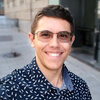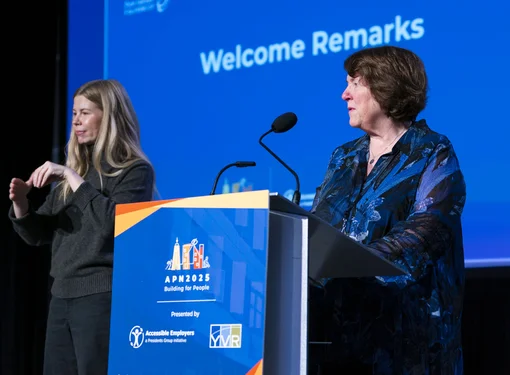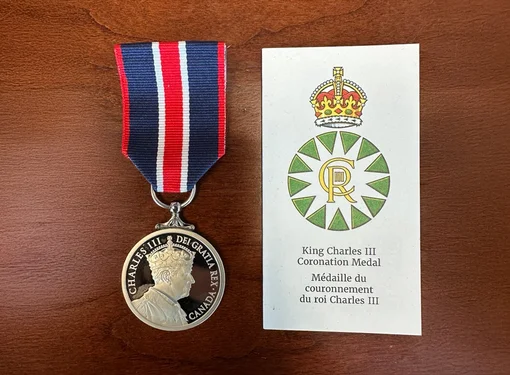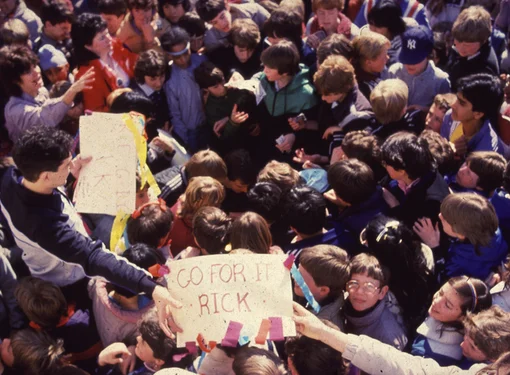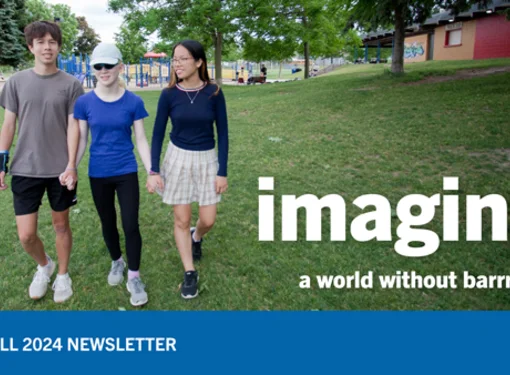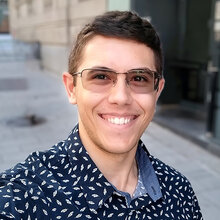Don’t congratulate me for having a beer (and other thoughts on being a student with a disability)
Ever wonder what it’s like to be young person studying at university full-time, volunteering, playing sports, and socializing – except they happen to use a wheelchair?
We chatted with 21-year-old Nathan Bragg, who has spastic cerebral palsy, about his experiences as a student and the challenges he faces on campus.
Disability or no disability, university is a challenge. What’s unique about your typical day?
“My days are similar to those of the average student without a disability, other than the fact that some tasks can take a bit more time. Because with my condition, I tend to have higher levels of spasticity when I first wake up so, so I usually try to take a little extra time when I wake up to stretch out a little bit to loosen up the muscles. Then obviously the standard stuff: shower, grab a bite to eat, etc. I struggle a bit with more fine motor tasks, so things like tying my shoes may take a little longer. Just making sure that everything [in my body] responds to the types of commands that I am trying to give them. Then, I just go through the average student life style. I take four classes, work 20 hours a week and am involved in a couple student groups.”
Your university is one of the most accessible and inclusive in the country, but are there still challenges to getting around in a wheelchair?
“I often find myself saying “It’s accessible, but …” to describe areas that people think are following inclusive design standards but in reality don’t really cut it. For example, we had a speaker (with a disability) come to present at the university, and he was looking for an accessible washroom. The one on the first floor was broken, so I brought him to the fourth floor. But when we get there, while it was marked as accessible, the door was not automatic."
Of course, studying is important, but nightlife is also a big part of every university student’s life. What has your experience been?
"As a 21-year-old living on campus, I see a lot of barriers when it comes to nightlife. There is only one accessible bar in this city that is supposed to be “fully accessible”, but the great thing is that it’s on campus. However, I have also been to a bar that has an accessible washroom, but steps to go in, or of course, the opposite. Many places have met some accessible requirements, but the reality is not 100% accessible.”
Another example of this are signs on the front doors of businesses that say “Ring if you need assistance”, but the button is on the top of a staircase. This is clearly an afterthought that is not functional. As a young person at this stage of my life, it is sad to see that people assume that individuals with disabilities won’t go out much. This reinforces negative stereotypes that people with disabilities can’t have active social lives. The reality is that it’s not always about capability, it’s about the barriers that are in the way."
What’s the most surprising thing someone has ever said to you while you were out?
“Congratulations for having a beer!”
“One thing that drives me crazy, is when I go out at night, someone always says something like, ‘Wow. It is so great to see you come out!’ For example, on St. Patrick’s Day, I went out to the student bar. A guy came up to me and my friends and congratulated us for coming out. It shouldn’t be a novelty to see a person in a wheelchair in a bar. And, it doesn’t only happen to me - people actually come up to my able-bodied friends and pat them on the back for being out with me. I have lost count of the amount of people that call my friends “such good people” or, “you’re just so nice.” Realistically, they could be terrible people that just happen to be friends with me. I could be a terrible person that just happens to be in a wheelchair, but luckily we’re not.
On the ‘You’re an inspiration!’ debate, I will tell you this: In my opinion, you can’t police what people take inspiration from. What one person may find inspirational, another person may not. My non-disabled friends sometimes inspire me by the way they show character or integrity, or handle the adversities in their life that people don’t realize. Occasionally, I do find being called inspirational patronizing; however, there are times where I feel like it comes from a genuine place of respect. With me, my challenges or more visible but that does not mean they are any worse or any better than someone else’s.”
What is one thing you wish people would do differently?
“I wish people would just ask me the questions on their mind or check to see if it’s ok to do something. One time when I was out, I saw a group of girls look and point at me from across the room. One came over and started dancing with me, while another took a photo, and then they left. They then continued pointing and chatting. Disability is a novelty to some people. The big thing is to ask the questions. Don’t do something without asking, and don’t ask my friend instead of talking to me. It’s important to actually engage with people, rather than just seeing them as their disability.”
You’ve identified some visible and invisible barriers and solutions that are within reach. On the positive side, what are some of the great things about your life on campus?
“There is never a dull moment. Even if I didn’t have a disability, life would probably be just as interesting. Everybody has their own stuff going on and things that happen, just mine is often due to one factor in my life.
As much as these are all isolated stories, university has been way more of a positive than negative experience for me. People often come up to me and actually ask questions. I answer honestly, and we become friends as a result. For every negative experience, there have been three or four positive moments that come from it. I’ve been able to work to increase accessibility and opportunities for students with disabilities on campus through my job at the Student Union’s Disability Awareness Centre. I’ve made a ton of good friends who I respect and care for, and I’ve hopefully been able to educate a few more people on some of the aspects of living with a disability. University is supposed to be a fun time in your life with successes and challenges along the way, whether you have a disability or not."
About the Authour: Michelle Shalinsky is the Access & Inclusion Coordinator for the Rick Hansen Foundation. She is a puppy lover, craft-a-holic who will find any excuse for ice cream.
We chatted with 21-year-old Nathan Bragg, who has spastic cerebral palsy, about his experiences as a student and the challenges he faces on campus.
Disability or no disability, university is a challenge. What’s unique about your typical day?
“My days are similar to those of the average student without a disability, other than the fact that some tasks can take a bit more time. Because with my condition, I tend to have higher levels of spasticity when I first wake up so, so I usually try to take a little extra time when I wake up to stretch out a little bit to loosen up the muscles. Then obviously the standard stuff: shower, grab a bite to eat, etc. I struggle a bit with more fine motor tasks, so things like tying my shoes may take a little longer. Just making sure that everything [in my body] responds to the types of commands that I am trying to give them. Then, I just go through the average student life style. I take four classes, work 20 hours a week and am involved in a couple student groups.”
Your university is one of the most accessible and inclusive in the country, but are there still challenges to getting around in a wheelchair?
“I often find myself saying “It’s accessible, but …” to describe areas that people think are following inclusive design standards but in reality don’t really cut it. For example, we had a speaker (with a disability) come to present at the university, and he was looking for an accessible washroom. The one on the first floor was broken, so I brought him to the fourth floor. But when we get there, while it was marked as accessible, the door was not automatic."
Of course, studying is important, but nightlife is also a big part of every university student’s life. What has your experience been?
"As a 21-year-old living on campus, I see a lot of barriers when it comes to nightlife. There is only one accessible bar in this city that is supposed to be “fully accessible”, but the great thing is that it’s on campus. However, I have also been to a bar that has an accessible washroom, but steps to go in, or of course, the opposite. Many places have met some accessible requirements, but the reality is not 100% accessible.”
Another example of this are signs on the front doors of businesses that say “Ring if you need assistance”, but the button is on the top of a staircase. This is clearly an afterthought that is not functional. As a young person at this stage of my life, it is sad to see that people assume that individuals with disabilities won’t go out much. This reinforces negative stereotypes that people with disabilities can’t have active social lives. The reality is that it’s not always about capability, it’s about the barriers that are in the way."
What’s the most surprising thing someone has ever said to you while you were out?
“Congratulations for having a beer!”
“One thing that drives me crazy, is when I go out at night, someone always says something like, ‘Wow. It is so great to see you come out!’ For example, on St. Patrick’s Day, I went out to the student bar. A guy came up to me and my friends and congratulated us for coming out. It shouldn’t be a novelty to see a person in a wheelchair in a bar. And, it doesn’t only happen to me - people actually come up to my able-bodied friends and pat them on the back for being out with me. I have lost count of the amount of people that call my friends “such good people” or, “you’re just so nice.” Realistically, they could be terrible people that just happen to be friends with me. I could be a terrible person that just happens to be in a wheelchair, but luckily we’re not.
On the ‘You’re an inspiration!’ debate, I will tell you this: In my opinion, you can’t police what people take inspiration from. What one person may find inspirational, another person may not. My non-disabled friends sometimes inspire me by the way they show character or integrity, or handle the adversities in their life that people don’t realize. Occasionally, I do find being called inspirational patronizing; however, there are times where I feel like it comes from a genuine place of respect. With me, my challenges or more visible but that does not mean they are any worse or any better than someone else’s.”
What is one thing you wish people would do differently?
“I wish people would just ask me the questions on their mind or check to see if it’s ok to do something. One time when I was out, I saw a group of girls look and point at me from across the room. One came over and started dancing with me, while another took a photo, and then they left. They then continued pointing and chatting. Disability is a novelty to some people. The big thing is to ask the questions. Don’t do something without asking, and don’t ask my friend instead of talking to me. It’s important to actually engage with people, rather than just seeing them as their disability.”
You’ve identified some visible and invisible barriers and solutions that are within reach. On the positive side, what are some of the great things about your life on campus?
“There is never a dull moment. Even if I didn’t have a disability, life would probably be just as interesting. Everybody has their own stuff going on and things that happen, just mine is often due to one factor in my life.
As much as these are all isolated stories, university has been way more of a positive than negative experience for me. People often come up to me and actually ask questions. I answer honestly, and we become friends as a result. For every negative experience, there have been three or four positive moments that come from it. I’ve been able to work to increase accessibility and opportunities for students with disabilities on campus through my job at the Student Union’s Disability Awareness Centre. I’ve made a ton of good friends who I respect and care for, and I’ve hopefully been able to educate a few more people on some of the aspects of living with a disability. University is supposed to be a fun time in your life with successes and challenges along the way, whether you have a disability or not."
About the Authour: Michelle Shalinsky is the Access & Inclusion Coordinator for the Rick Hansen Foundation. She is a puppy lover, craft-a-holic who will find any excuse for ice cream.

